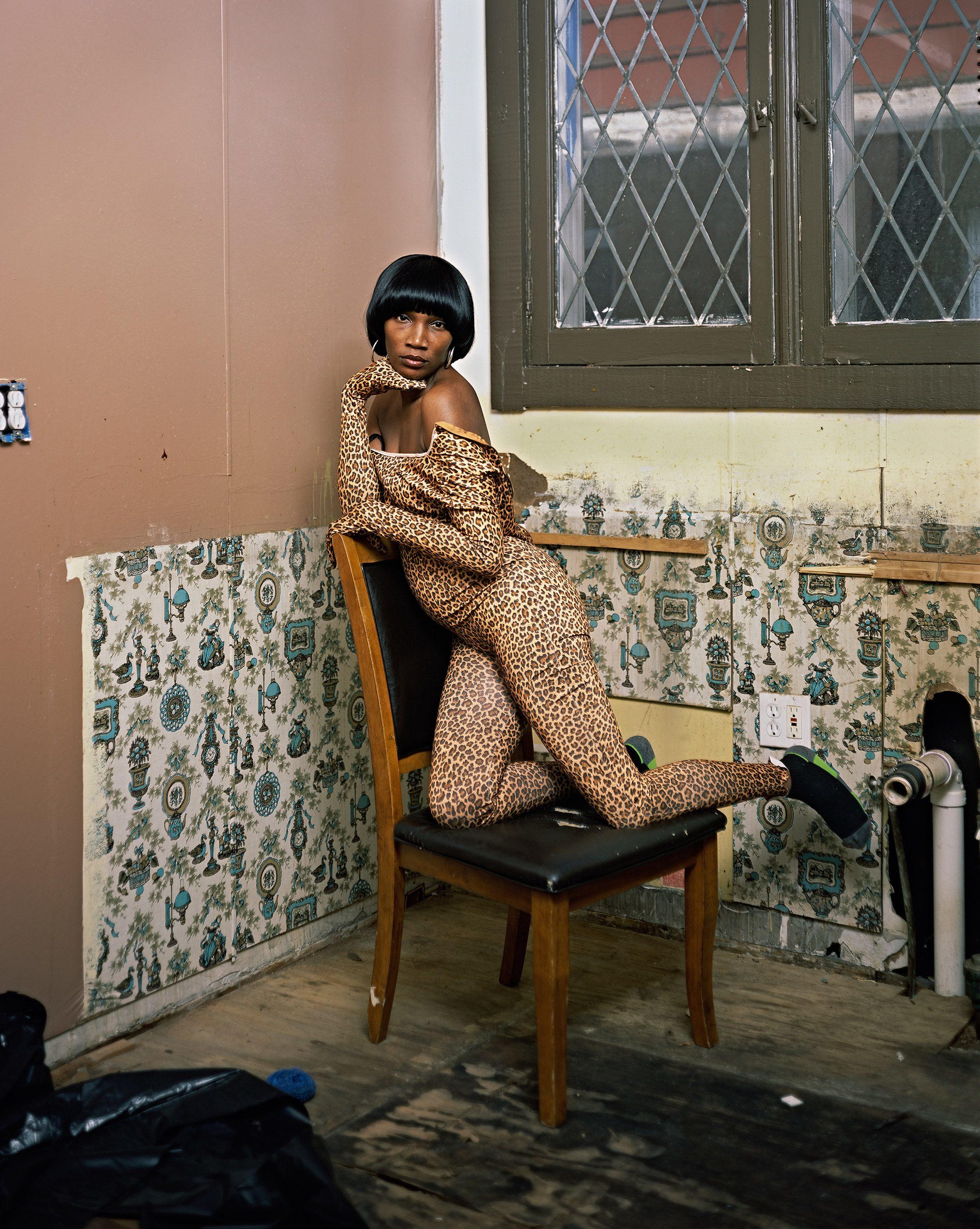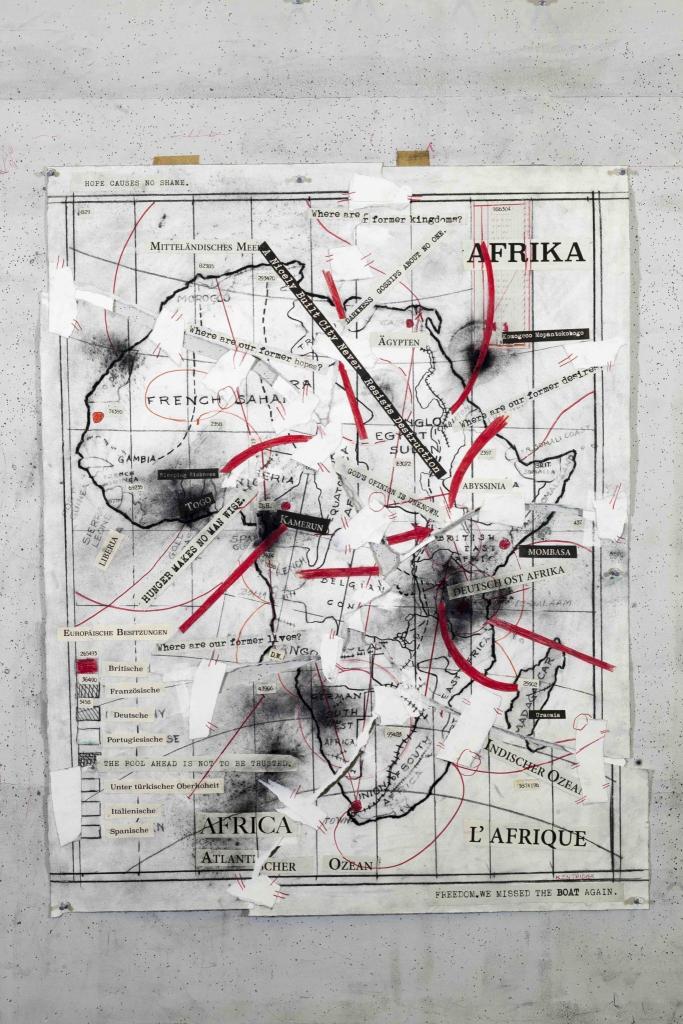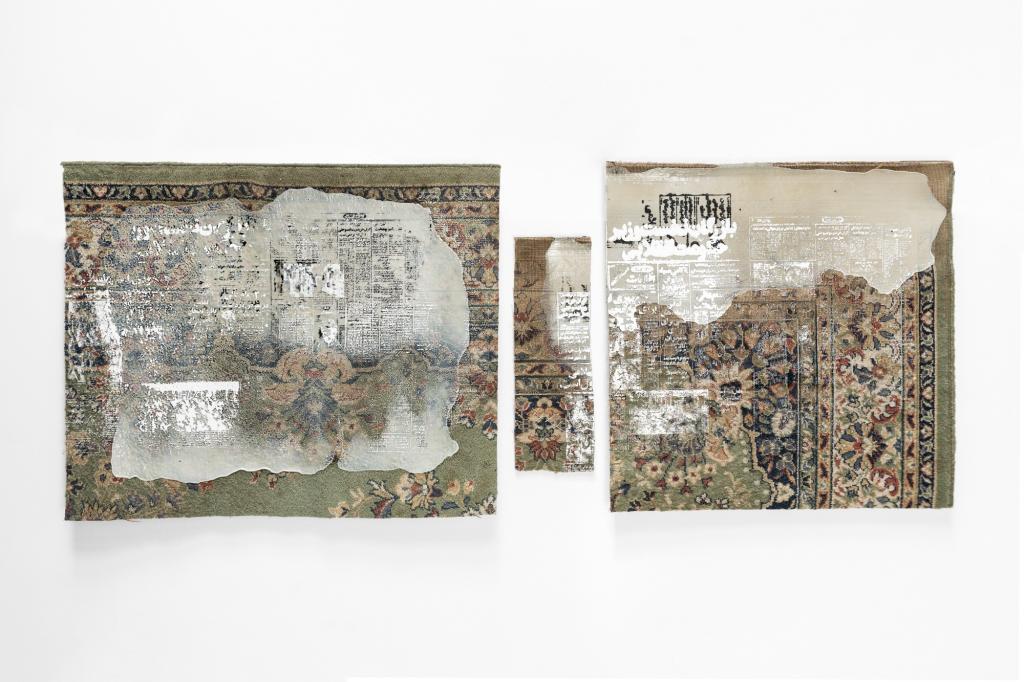Deana Lawson: Portrait of contemporary black life
27/03/2020 - 24/05/2020
Meticulously staged yet profoundly intimate images of the sartorial styles, quotidian habits, and domestic interiors of the African diaspora in her native United States, Brazil, and beyond, Deana Lawson’s (* 1979) photographs are unforgettable portraits of contemporary Black life.
Deana Lawson (b. 1979 Rochester, NY) is a photo-based artist whose work examines the body’s ability to channel personal and social histories, addressing themes of familial legacy, community, romance, and spiritual aesthetics. Her practice borrows from simultaneous visual traditions, ranging from photographic and figurative portraiture, social documentary aesthetics, and vernacular family album photographs. Lawson is visually inspired by the materiality of black culture and its expression as seen through the body and in domestic environments. Careful attention is given to lighting and pose, both formal constructs used to transform and intensify representations of power and liberation through the personal and intimate space.

Deana Lawson received her MFA in Photography from RISD in 2004. Her work has been exhibited at the Whitney Museum of American Art, Museum of Modern Art (MoMA), Art Institute of Chicago, Carnegie Museum of Art in Pittsburgh, Contemporary Art Museum St. Louis, Institute of Contemporary Art in Philadelphia, Brooklyn Museum of Art, MoMA PS1 in Long Island City, among others institutions. In 2013, Lawson was awarded a Guggenheim Fellowship, which allowed her to expand her locations of work to include Jamaica, Haiti, and West Africa.

In 2019, for the 34th Bienal of Sāo Paulo, Brazil, Deana Lawson has been selected to have the third solo show at the Bienal Pavilion. Attentive to the stereotypes of Western and African portraits and committed to extrapolating their limits, Deana Lawson produced a new set of images in Salvador (BA), as part of her series of photos that portray, with an extremely personal approach, places marked by the strong presence of cultures deriving from the African diaspora.
The exhibition is generously supported by François Gutzwiller with additional support from the Ruth & Arthur Scherbarth Stiftung. Co-produced with the Fundação Bienal de São Paulo.




